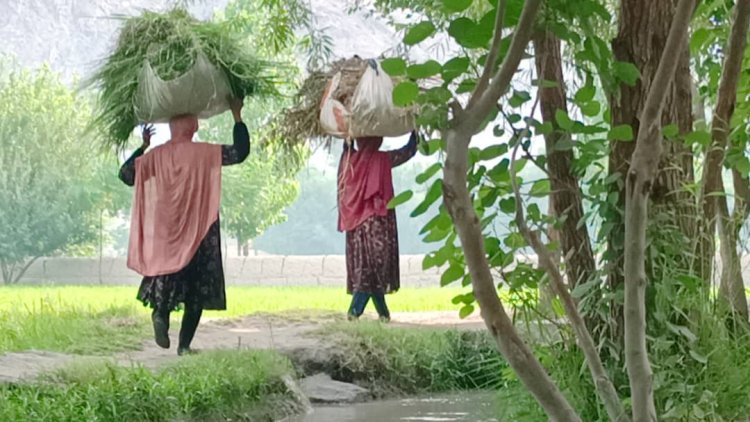From Home to the Fields: A Day with Shakila in Laghman

In Qarghayi district of Laghman, the sun has just risen, and the heat is slowly scorching the land. In this hot weather, Shakila, a 39-year-old woman, is working in her fifteen-biswah field. Her hands are calloused, and her feet are cracked. Beside her, her thirteen-year-old son sows seeds into the furrows, trying not to fall behind his mother’s pace.
Shakila starts her day this way every morning. She digs into the soil with her hoe, spreads the seeds, and carefully waters the land. After her husband’s death, she has taken full responsibility for the house, the land, and her three children. She says, “I have three children, one son and two daughters. Every day I work in the field with my son. I have no one to manage the land for me.”
Farming is only part of her daily life. At home, she also takes care of cooking, household chores, and her animals. Shakila says, “My daughters are married. All the work falls on me and my son. I work the land, manage the household, and take care of the animals.”
Her field produces lettuce, tomatoes, eggplants, and cucumbers. Each day, the harvest is taken to the market by her son. She says, “I plant fresh vegetables every year because they bring quick income. I earn six to eight hundred Afghanis a week from selling the produce. But this year, the drought is severe. Water is scarce, and the harvest is not like last year.”
Like other farmers, she worries about the expanding drought. She says the lack of water has destroyed many crops, and some fields in the area have turned barren.
Alongside these challenges, the opinions and remarks of neighbors and relatives add another burden. Often, relatives and villagers say, “You are a woman; don’t work in the fields. Give your land to men to cultivate.” Shakila says she pays no attention to these comments and continues working with her son.
By midday, as the heat intensifies, Shakila sets her hoe aside and rests briefly in the shade. She looks over her land and crops, then prepares herself again to tend the fields and household chores. Each day this cycle repeats, without interruption, with no one to take her place.
